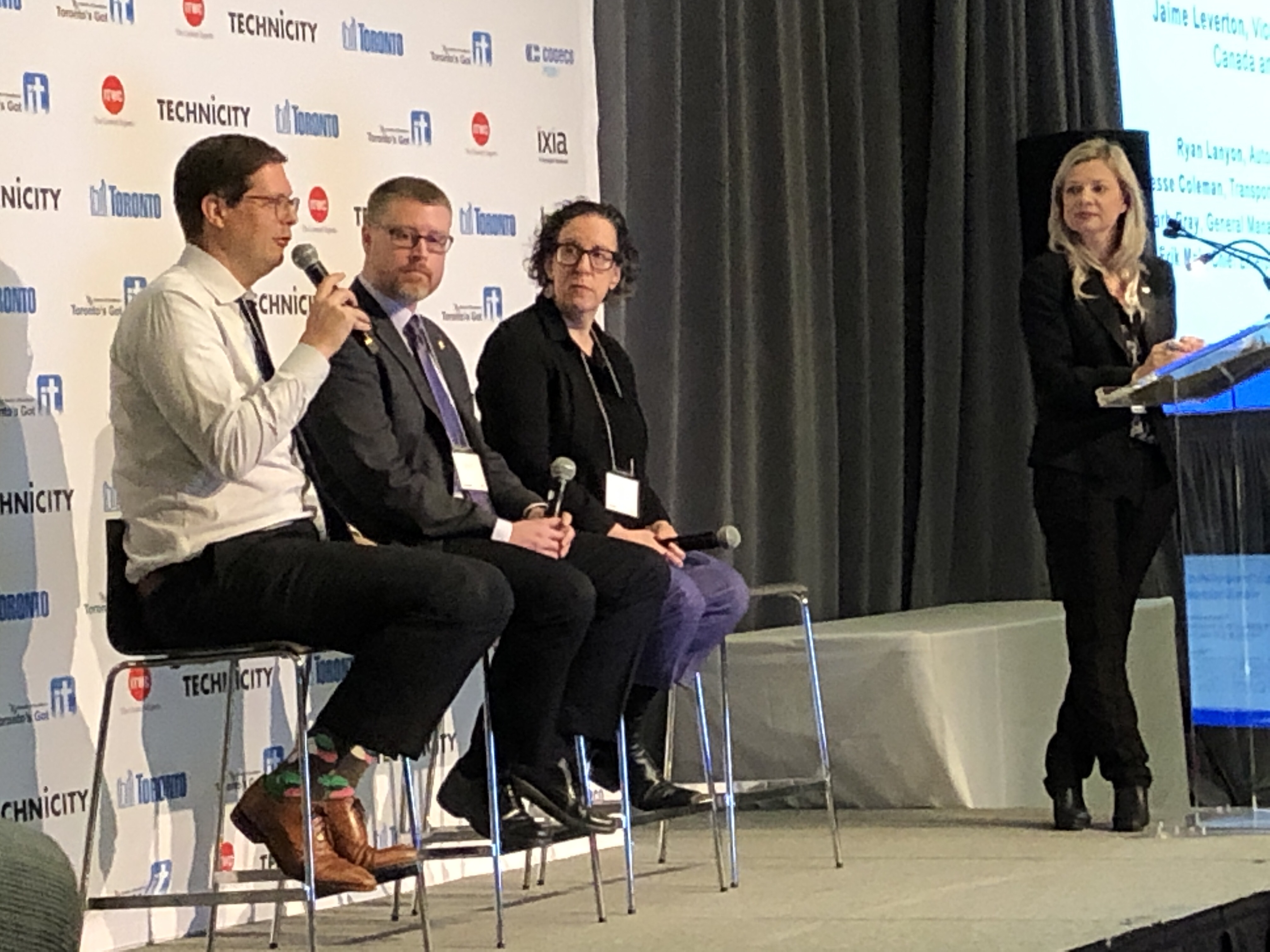Every year, IT World Canada organizes the Technicity conference in Toronto, providing a technology showcase for the city and an opportunity to hear about some of the things that are happening both in the city government and organizations that operate here. Fawn Annan, president of ITWC, opened the conference and introduced the city manager, Chris Murray for a backgrounder on the city as an economic engine, and how technology enables that.
The sessions started with a panel on transportation technology, moderated by Jaime Leverton, GM of Cogeco Peer 1 and featuring three people from the City of Toronto: Barb Gray, General Manager of Transportation Services; Ryan Landon, Autonomous Vehicle Lead; and Jesse Coleman, Transportation Big Data Team Leader. Erik Mok, Chief Enterprise Architect for the Toronto Transit Commission, is also supposed to be on the panel but not arrived yet: hopefully not delayed on the TTC. 🙂

They spoke about the need for data collection in order to determine how to improve transportation in the city, whether related to personal vehicles, public transit, cycling or walking. In the past, this used to require manual data collection on the street; these days, the proliferation of traffic cameras, embedded sensors and smartphones means that a lot of data is being collected about how people are moving around the streets. This creates a need for understanding how to work with the resulting big data, and huge opportunities for gaining better insights into making the streets more efficient and safer for everyone. Since the city is a big proponent of open data, this means that the data that the city collects is available (in an anonymized format) to anyone who wants to analyze it. The city is trying to do some of this analysis themselves (without the benefit of a data scientist job classification at the city), but the open data initiative means that a lot of commercial organizations — from big companies to startups — are incorporating this into apps and services. For the King Street Pilot, a year-old project that restricts the travel of private cars on our busiest streetcar route in order to prioritize public transit, the city deployed new types of sensors to measure the impact: Bluetooth sensors that track devices, traffic cameras with embedded AI, and more. This allows for unbiased measurement of the actual impact of the pilot (and other initiatives) that can be communicated to constituents.
There are privacy safeguards in place for ensuring that Bluetooth devices that are tracked can’t be traced to an individual on an ongoing basis, but video is a larger issue: in general, intelligence related to the transportation issues is extracted from the video, then the video is discarded. They mentioned the need for privacy by design, that is, building in privacy considerations from the start of any data collection project, not trying to add it on later.
They also discussed some of the smart sensors and signals being used for controlling traffic signals, where the length of the waiting queue of vehicles can influence when the traffic signals change. This isn’t just related to vehicles, however: there’s an impact on pedestrians that use the same intersections, and on public health in terms of people with mobility challenges.
Cities like Seattle, San Francisco and New York, that started with transportation data collection much earlier than Toronto, are doing some innovative things but the panel feels that we’re catching up: there’s an autonomous shuttle project in the works now to fill some of the gaps in our transit system, for example. There’s also some work being done with drones to monitor traffic congestion around special events (presumably both vehicle and pedestrian) in order to understand dispersal patterns.
Interesting audience questions on data storage (Amazon AWS) and standardization of data formats, especially related to IoT.
As a Toronto resident who uses public transit, walks a lot and sometimes even drives, some great information on how big data is feeding into improving mobility for everyone.
